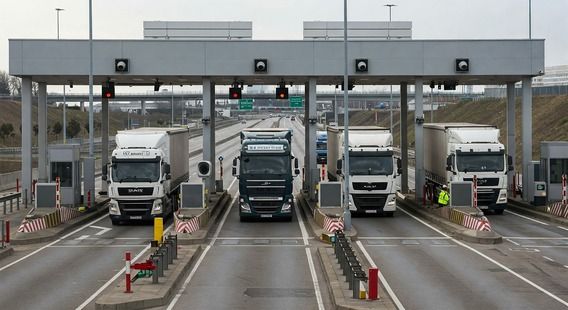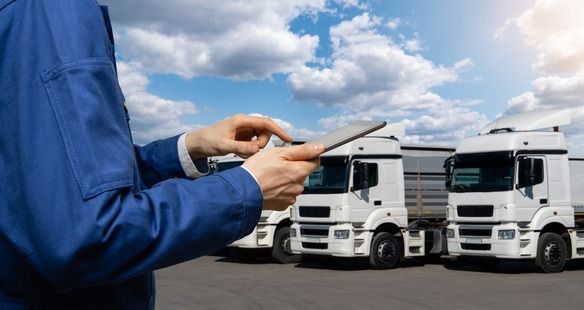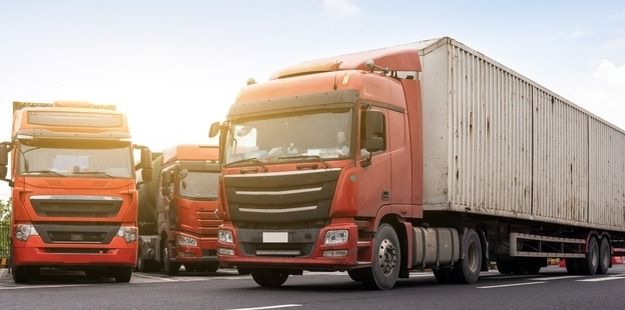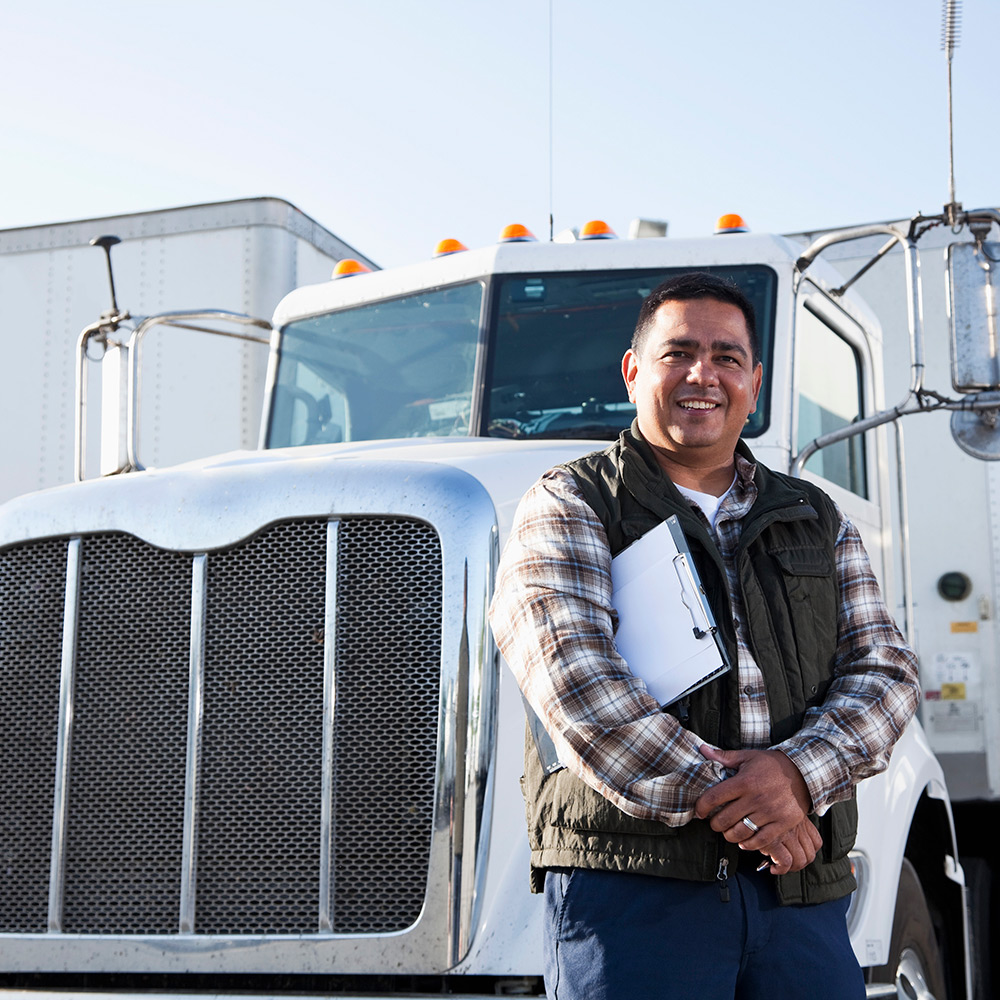Fleet management is a fundamental aspect of business operations for companies that rely on transportation and logistics. It involves the oversight of various functions, including vehicle acquisition, maintenance, telematics (tracking and diagnostics), driver management, speed regulation, fuel optimization, and safety compliance.
Businesses that successfully implement robust fleet management strategies can significantly reduce expenses, ensure regulatory adherence, and optimize fleet utilization. This, in turn, enhances service delivery, improves profitability, and strengthens the company's competitive position in the market. Whether a company operates a small local fleet or a large nationwide distribution network, an optimized fleet directly impacts performance, productivity, and customer trust.
The Growing Challenges in Fleet Expansion
Despite the critical role that fleet management plays in business operations, the industry faces multiple challenges that hinder the growth and efficiency of fleet operations. To understand the growing need for adaptability in fleet acquisition, it is essential to examine the key market trends influencing procurement strategies:
1. Rising Vehicle Demand and Market Volatility
The demand for commercial vehicles is outpacing supply, leading to increased costs and limited availability. Factors such as supply chain disruptions, semiconductor shortages, and global economic instability contribute to market unpredictability. In response, fleet managers are adopting strategies such as leasing, long-term procurement planning, and diversifying suppliers to ensure vehicle availability without compromising efficiency.
2. Integration of Advanced Telematics and Predictive Maintenance
The adoption of telematics, artificial intelligence (AI), and predictive maintenance tools is revolutionizing fleet management. Companies are prioritizing vehicles that seamlessly integrate with fleet tracking and diagnostic systems, allowing for real-time data analysis and proactive maintenance scheduling. This shift not only enhances vehicle longevity but also reduces downtime and operational costs.
3. Economic Pressures Impacting Total Cost of Ownership (TCO)
Fleet acquisition strategies are heavily influenced by rising fuel prices, increasing interest rates, and inflation-driven cost hikes. Businesses must explore cost-effective procurement models, such as fleet leasing, subscription-based vehicle services, and fuel-efficient vehicle options, to maintain profitability and reduce long-term expenses.
4. Environmental Regulations Driving Sustainable Fleet Choices
Stringent emissions regulations and government incentives for sustainable transportation are pushing companies to transition towards eco-friendly fleets. Electric vehicles (EVs), hybrid models, and alternative fuel solutions are becoming increasingly viable options for businesses aiming to meet sustainability targets while minimizing fuel dependency and emissions-related expenses.
5. Evolving Customer Expectations and Service Demands
With the rise of e-commerce, last-mile delivery services, and heightened consumer expectations, businesses must ensure their fleet composition aligns with demand for faster, more reliable transportation solutions. Fleet managers are investing in vehicles optimized for speed, efficiency, and adaptability to meet the growing need for on-time deliveries and superior customer service.
Flexibility in Fleet Acquisition and Business Growth
Fleet acquisition flexibility plays a crucial role in positioning businesses for sustainable growth. By leveraging diverse acquisition strategies, companies can remain agile, optimize operational efficiency, and scale their fleets in response to fluctuating market demands. Whether responding to seasonal business cycles, economic shifts, or emerging industry trends, a flexible fleet acquisition approach enables organizations to maximize resources while maintaining financial stability.
A rigid, one-size-fits-all approach to fleet procurement can limit a company's ability to expand or pivot in response to changing conditions. However, employing a mix of acquisition strategies—such as leasing, renting, and purchasing—allows businesses to maintain fleet readiness while avoiding excessive capital investments. As fleet management evolves, the ability to adapt procurement methods will be a key factor in achieving long-term success.
Key Benefits of Flexible Fleet Acquisition
To fully grasp how fleet acquisition flexibility fuels business growth, it is essential to examine the core benefits of a diversified approach:
1. Financial Flexibility and Cash Flow Optimization
- Companies can conserve capital by leasing or renting vehicles rather than purchasing outright.
- Leasing and rental options reduce the financial burden of large upfront expenditures, allowing businesses to allocate resources to other strategic initiatives.
- Flexible financing terms enable businesses to better manage operating expenses and navigate economic downturns.
2. Rapid Adaptation to Market Conditions
- Fleet flexibility allows businesses to scale operations up or down based on demand fluctuations, ensuring optimal fleet utilization.
- Seasonal or project-based fleet expansions can be managed through rental agreements, minimizing excess vehicle inventory.
- Companies can quickly replace or adjust vehicle types based on new regulatory requirements, technology advancements, or customer preferences.
3. Access to Newer, More Efficient Vehicles
- Leasing and rental agreements provide opportunities to upgrade fleets more frequently, ensuring access to the latest vehicle technology.
- Newer models often feature improved fuel efficiency, lower emissions, and enhanced safety features, contributing to cost savings and regulatory compliance.
- Access to advanced vehicle technology, including electric and hybrid models, enables businesses to future-proof their fleets.
4. Scalability for Business Growth
- Businesses can expand their fleets in response to growth opportunities without committing to long-term financial liabilities.
- Scalability ensures that companies can enter new markets, increase service capacity, or diversify fleet assets without operational disruption.
- A flexible acquisition strategy supports rapid business expansion while minimizing the risks associated with fleet underutilization or excessive ownership costs.
Implementing Flexible Fleet Acquisition Strategies
Businesses can adopt various strategies to introduce greater flexibility into their fleet acquisition processes:
1. Lease Agreements for Long-Term Cost Control
- Leasing provides predictable costs, maintenance coverage, and the option to upgrade vehicles at the end of the term.
- Operating leases allow businesses to use vehicles without assuming ownership responsibilities, reducing depreciation risks.
- Finance leases offer long-term vehicle use with potential ownership benefits.
2. Rental Solutions for Short-Term Needs
- Short-term rentals allow businesses to expand fleet capacity for seasonal or project-based demand spikes.
- Rental agreements provide immediate access to vehicles without the long-term commitment of ownership or leasing.
3. Subscription-Based Fleet Models
- Vehicle subscription services offer on-demand access to fleet assets with built-in maintenance and insurance coverage.
- Subscriptions provide maximum flexibility for companies that require fleet adaptability without fixed-term contracts.
4. Fleet Management Services for Enhanced Efficiency
- Outsourcing fleet management enables businesses to streamline procurement, maintenance, and compliance processes.
- Fleet management providers offer strategic insights into optimizing vehicle lifecycles and reducing overall operational costs.
Embracing Technology and Data Analytics
Incorporating technology and data analytics is imperative for managing fleet growth and acquisition strategies. As fleet sizes expand and operational demands evolve, leveraging technology provides fleet managers with unparalleled insights and control over their assets. Data analytics empowers businesses to make informed decisions, optimizing their fleet's effectiveness and contributing to overall business growth.
Technology as a Catalyst for Fleet Management Enhancements
- Utilizing Fleet Management Software
Fleet management software offers robust tools for tracking vehicle locations, maintenance schedules, and driver behaviors. It increases operational efficiency by automating routine tasks and providing real-time alerts.
- Integrating Telematics and IoT Devices
Telematics and Internet of Things (IoT) devices collect and transmit data related to vehicle usage, condition, and performance metrics. This data can be used to prevent breakdowns, manage fuel consumption, and improve route planning.
- Data-Driven Vehicle Acquisition
By analyzing historical fleet data, companies can identify trends and forecast future needs, guiding strategic vehicle acquisition and ensuring fleets align with business objectives.
- Predictive Analytics for Maintenance
Predictive analytics utilize data, statistical algorithms, and machine learning techniques to identify the likelihood of future outcomes. In fleet management, this translates into foreseeing vehicle maintenance needs, allowing for preemptive action to avoid costly downtimes.
By relying on data analytics and the latest software tools, businesses can improve vehicle utilization, ensure proactive maintenance, and facilitate strategic fleet expansion—all of which are key to supporting business growth objectives.
Take Your Fleet Management to the Next Level with BestPass
Whether you're navigating vehicle shortages, regulatory complexities, or cost pressures, BestPass has the tools, expertise, and technology to keep your fleet moving efficiently and compliantly.
We help businesses like yours enhance fleet utilization, reduce expenses, and maintain a competitive edge in the market. From compliance management and real-time analytics, our tailored solutions empower you to scale your fleet without compromising efficiency or profitability.
Get Started Today!
Don't let fleet management challenges slow you down. Partner with BestPass to future-proof your operations and drive sustainable business growth. Contact us today to learn how we can help you optimize your fleet and stay ahead in an evolving industry!






